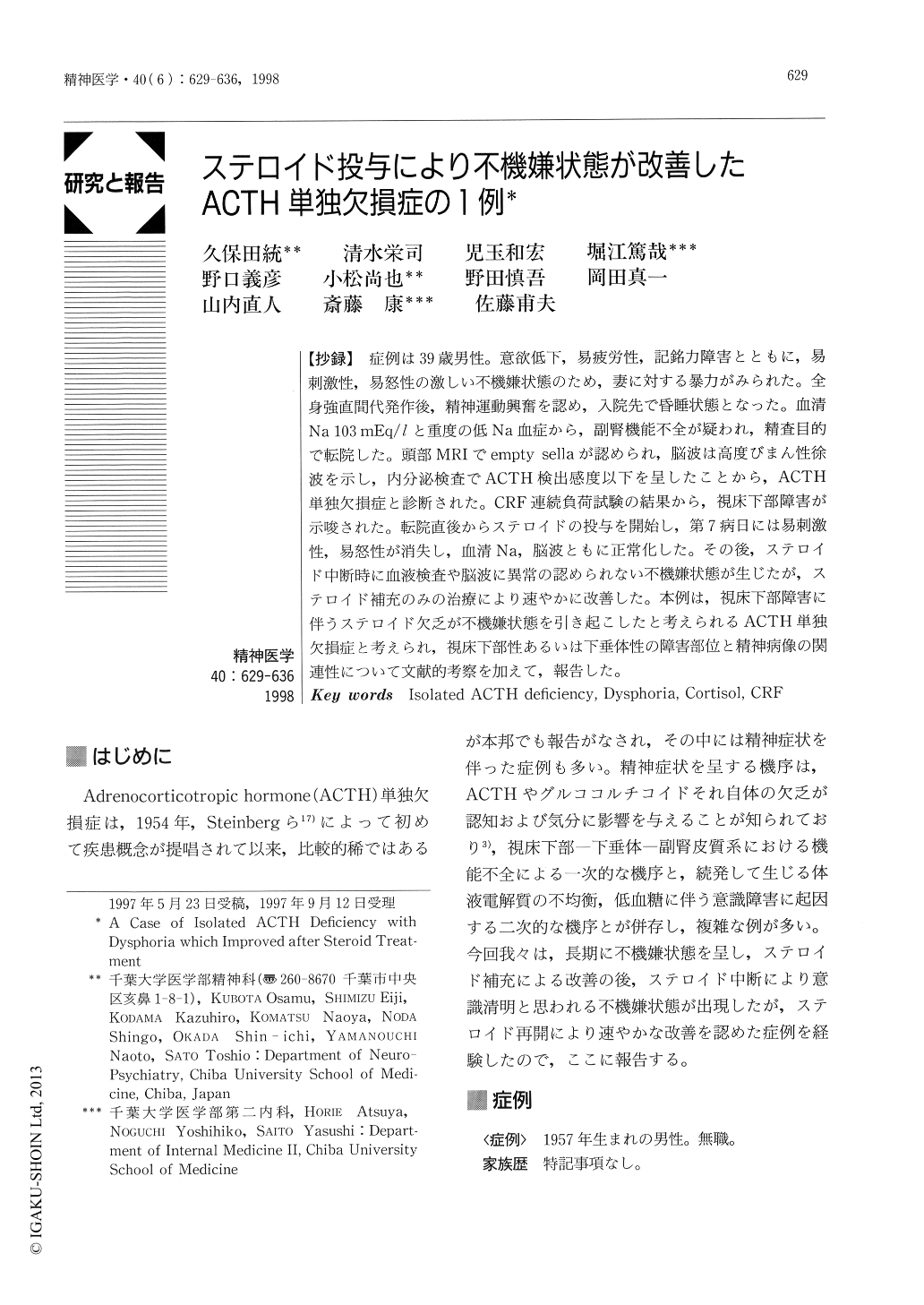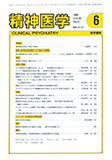Japanese
English
- 有料閲覧
- Abstract 文献概要
- 1ページ目 Look Inside
- サイト内被引用 Cited by
【抄録】症例は39歳男性。意欲低下,易疲労性,記銘力障害とともに,易刺激性,易怒性の激しい不機嫌状態のため,妻に対する暴力がみられた。全身強直間代発作後,精神運動興奮を認め,入院先で昏睡状態となった。血清Na 103mEq/lと重度の低Na血症から,副腎機能不全が疑われ,精査目的で転院した。頭部MRIでempty sellaが認められ,脳波は高度びまん性徐波を示し,内分泌検査でACTH検出感度以下を呈したことから,ACTH単独欠損症と診断された。CRF連続負荷試験の結果から,視床下部障害が示唆された。転院直後からステロイドの投与を開始し,第7病日には易刺激性,易怒性が消失し,血清Na,脳波ともに正常化した。その後,ステロイド中断時に血液検査や脳波に異常の認められない不機嫌状態が生じたが,ステロイド補充のみの治療により速やかに改善した。本例は,視床下部障害に伴うステロイド欠乏が不機嫌状態を引き起こしたと考えられるACTH単独欠損症と考えられ,視床下部性あるいは下垂体性の障害部位と精神病像の関連性について文献的考察を加えて,報告した。
We encountered a patient with an isolated ACTH deficiency who had had dysphoria for 6 years. The 39 year-old Japanese man demonstrated loss of energy, fatigue, encoding disorder and aggressive behavior. Fortunately he responded positively to steroid therapy.
After a convulsion, he began to experience psychomotor excitation, and then fell into a coma. At that time, his serum Na level was severely low. We diagnosed him as having an isolated ACTH deficiency by using the CRF continuous loading test. His EEG showed diffuse slow waves and brain MRI depicted empty sella. After the seventh day of steroid therapy, he recovered from the coma, and his serum Na level along with EEG returned to normal. Interruption of steroid therapy caused dysphoria without delirium. His psychiatric symptoms soon disappeared after steroid treatment.
This case suggests that ACTH deficiency might produce, not only delirium, but also dysphoria. Glucocorticoids and ACTH have been found to cause mood changes and cognitive disorders. But these mechanisms remain to be elucidated.

Copyright © 1998, Igaku-Shoin Ltd. All rights reserved.


